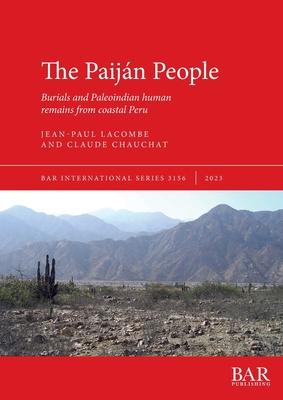From 1972 to 1997, archaeological research was undertaken on open air early sites on the north coast of Peru (Cupisnique region: about 7 30 south latitude). These sites contained lithic tools and faunal remains belonging to the Paijn tradition, dating from around 13000 to around 8000 cal BP. In this desert space between the Pacific Ocean and the Andes, superficial sites contained knapped lithics (projectile points and ordinary tools on flakes) and microfaunal remains such as land snails, fish and lizards. After discovering human remains eroding out of the surface, a French-Peruvian team including archaeologist Claude Chauchat and bio-anthropologist Jean-Paul Lacombe excavated a total of 19 burials associated with this Paijn tradition. This book presents a detailed description of these remains, yielding information about these foragers' physical constitution as well as their lifestyle. These remains are also compared with several other populations from coastal Peru, remains from the highland caves, and other findings from South and north America dating from the Pleistocene - Holocene transition.

The Paijn People: Burials and Paleoindian human remains from coastal Peru
From 1972 to 1997, archaeological research was undertaken on open air early sites on the north coast of Peru (Cupisnique region: about 7 30 south latitude). These sites contained lithic tools and faunal remains belonging to the Paijn tradition, dating from around 13000 to around 8000 cal BP. In this desert space between the Pacific Ocean and the Andes, superficial sites contained knapped lithics (projectile points and ordinary tools on flakes) and microfaunal remains such as land snails, fish and lizards. After discovering human remains eroding out of the surface, a French-Peruvian team including archaeologist Claude Chauchat and bio-anthropologist Jean-Paul Lacombe excavated a total of 19 burials associated with this Paijn tradition. This book presents a detailed description of these remains, yielding information about these foragers' physical constitution as well as their lifestyle. These remains are also compared with several other populations from coastal Peru, remains from the highland caves, and other findings from South and north America dating from the Pleistocene - Holocene transition.